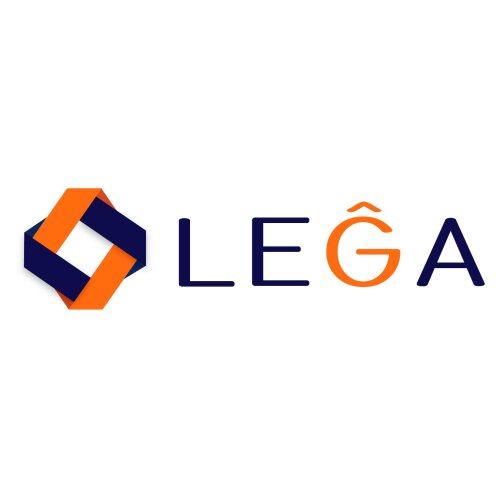Best Tax Increment Financing Lawyers in Venezuela
Share your needs with us, get contacted by law firms.
Free. Takes 2 min.
Or refine your search by selecting a city:
List of the best lawyers in Venezuela
About Tax Increment Financing Law in Venezuela
Tax Increment Financing (TIF) in Venezuela is a public financing method used to subsidize infrastructure and community improvement projects. The concept allows municipalities to redirect tax revenue increases-generated as a result of increased property values in a defined area-toward funding development projects. This tool is intended to help stimulate economic development in underutilized or blighted areas by leveraging anticipated future tax revenue increases. The legal framework surrounding TIF in Venezuela mandates careful planning and transparent processes to ensure effective implementation and community benefit.
Why You May Need a Lawyer
Engaging a lawyer knowledgeable in TIF may be crucial in several scenarios. Firstly, developers or local governments looking to initiate TIF projects might require legal advice to navigate the complex regulatory landscape. Secondly, existing businesses and residents within a TIF district may seek legal counsel to understand potential impacts on property taxes or rights. Lastly, disputes or conflicts with municipalities regarding TIF project approvals or community developments can require legal intervention to resolve. A lawyer specialized in this field can provide guidance on compliance, negotiations, project structuring, and conflict resolution.
Local Laws Overview
Tax Increment Financing in Venezuela is governed by specific municipal laws that differ from one locality to another. These laws usually outline the procedures for establishing a TIF district, eligibility criteria for projects, and the methods for calculating and allocating tax increments. Key aspects often include requirements for public consultations, transparency in reporting and financial management, and adherence to environmental and social considerations. Understanding these laws is essential for effective participation and to ensure all parties' rights and obligations are clearly defined.
Frequently Asked Questions
What is the primary purpose of Tax Increment Financing?
The primary purpose of TIF is to finance infrastructure improvements and stimulate economic development in underdeveloped or distressed areas by reinvesting the future tax revenue gains back into those areas.
How do TIF districts affect my property taxes?
In a TIF district, property taxes are typically frozen at pre-determined base levels, and any incremental tax revenue generated as property values increase is used to finance development projects. This should not directly increase your property taxes but can impact municipal services.
Can TIF be used for any type of development?
Not all types of development are eligible for TIF funding. Most local laws stipulate that projects must contribute to public infrastructure or provide significant community benefits.
Who decides if a TIF district is created?
The creation of a TIF district is usually decided by local governmental authorities, often following a public consultation process to ensure community support and input.
What happens if a TIF project is unsuccessful?
If a TIF project fails, the financial risk is generally assumed by the municipality, not individual taxpayers. However, this can limit future municipal financial capacity.
Are there limitations on how TIF funds can be used?
Yes, there are often strict legal limitations on the use of TIF funds, typically restricted to project-related expenses with clear public benefits.
What role does public input play in TIF projects?
Public input is crucial and often legally mandated in the TIF process, with opportunities for community members to voice their opinions during the planning stages.
Do TIF districts impact local businesses?
TIF districts can positively affect local businesses by improving infrastructure and attracting more customers. However, they may also increase competition and costs in the area.
Are there environmental considerations in TIF projects?
Yes, most TIF projects are required to undergo environmental assessments to ensure compliance with local and national environmental regulations.
Can residents oppose a TIF project?
Residents can participate in public consultations to express opposition or concerns, which local authorities may consider in their decision-making process.
Additional Resources
For more information on TIF in Venezuela, consider consulting the Ministry of Urban Development, local chapters of the Association of Municipalities of Venezuela, or economic development boards. Various non-governmental organizations and academic institutions also conduct research and publish guidance on implementing TIF effectively in Venezuela.
Next Steps
If you require legal assistance in Tax Increment Financing, begin by researching and contacting a lawyer or law firm specializing in municipal or developmental law in Venezuela. Prepare relevant documents and questions in advance to facilitate efficient legal consultations. You may also reach out to local government offices for referrals to authorized legal services familiar with local TIF laws and projects.
Lawzana helps you find the best lawyers and law firms in Venezuela through a curated and pre-screened list of qualified legal professionals. Our platform offers rankings and detailed profiles of attorneys and law firms, allowing you to compare based on practice areas, including Tax Increment Financing, experience, and client feedback.
Each profile includes a description of the firm's areas of practice, client reviews, team members and partners, year of establishment, spoken languages, office locations, contact information, social media presence, and any published articles or resources. Most firms on our platform speak English and are experienced in both local and international legal matters.
Get a quote from top-rated law firms in Venezuela — quickly, securely, and without unnecessary hassle.
Disclaimer:
The information provided on this page is for general informational purposes only and does not constitute legal advice. While we strive to ensure the accuracy and relevance of the content, legal information may change over time, and interpretations of the law can vary. You should always consult with a qualified legal professional for advice specific to your situation.
We disclaim all liability for actions taken or not taken based on the content of this page. If you believe any information is incorrect or outdated, please contact us, and we will review and update it where appropriate.
Browse tax increment financing law firms by city in Venezuela
Refine your search by selecting a city.















